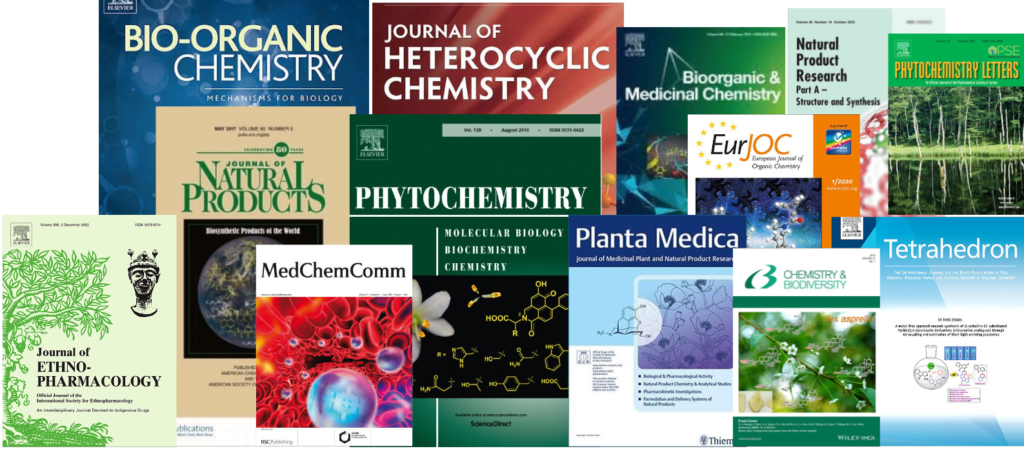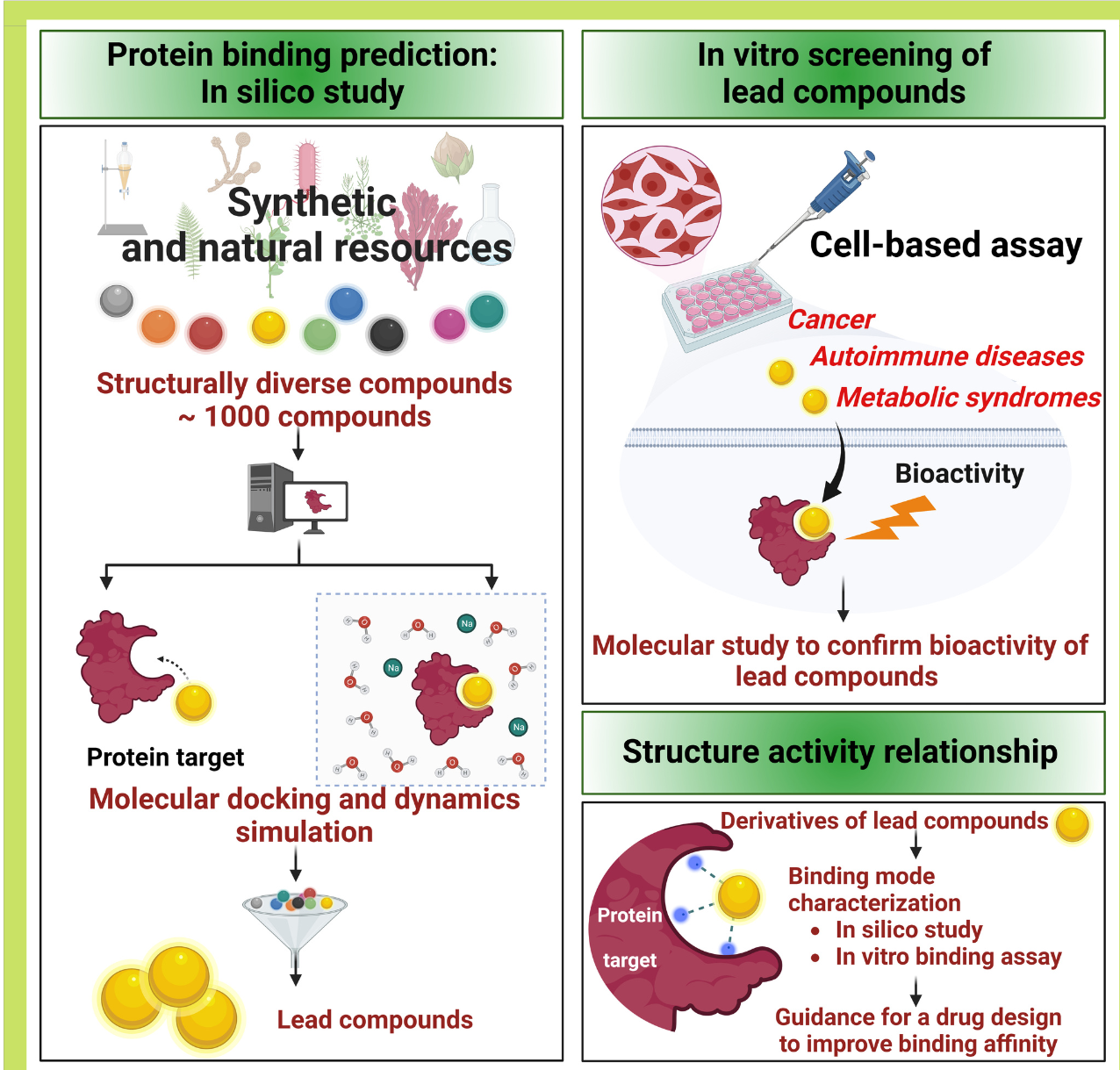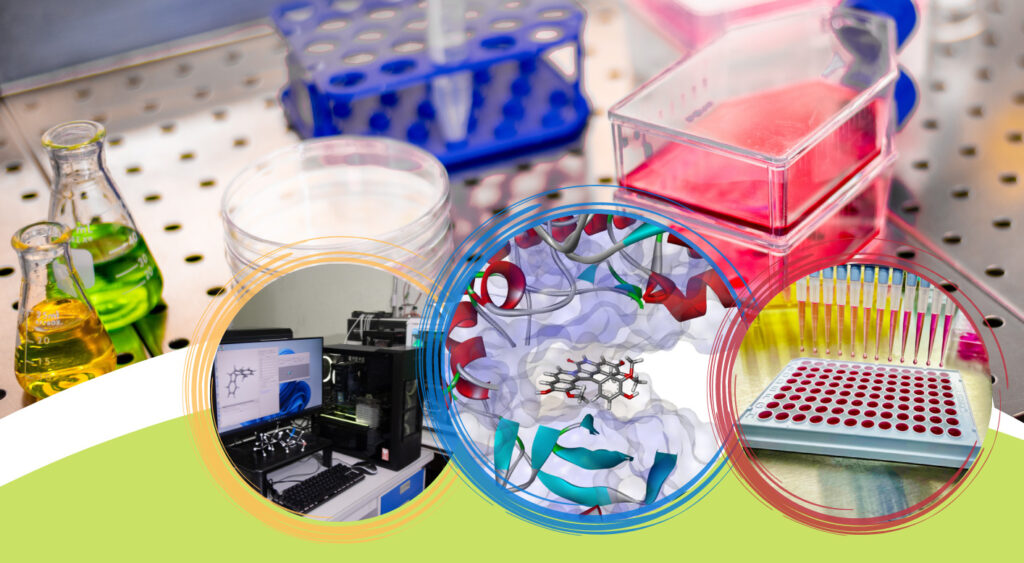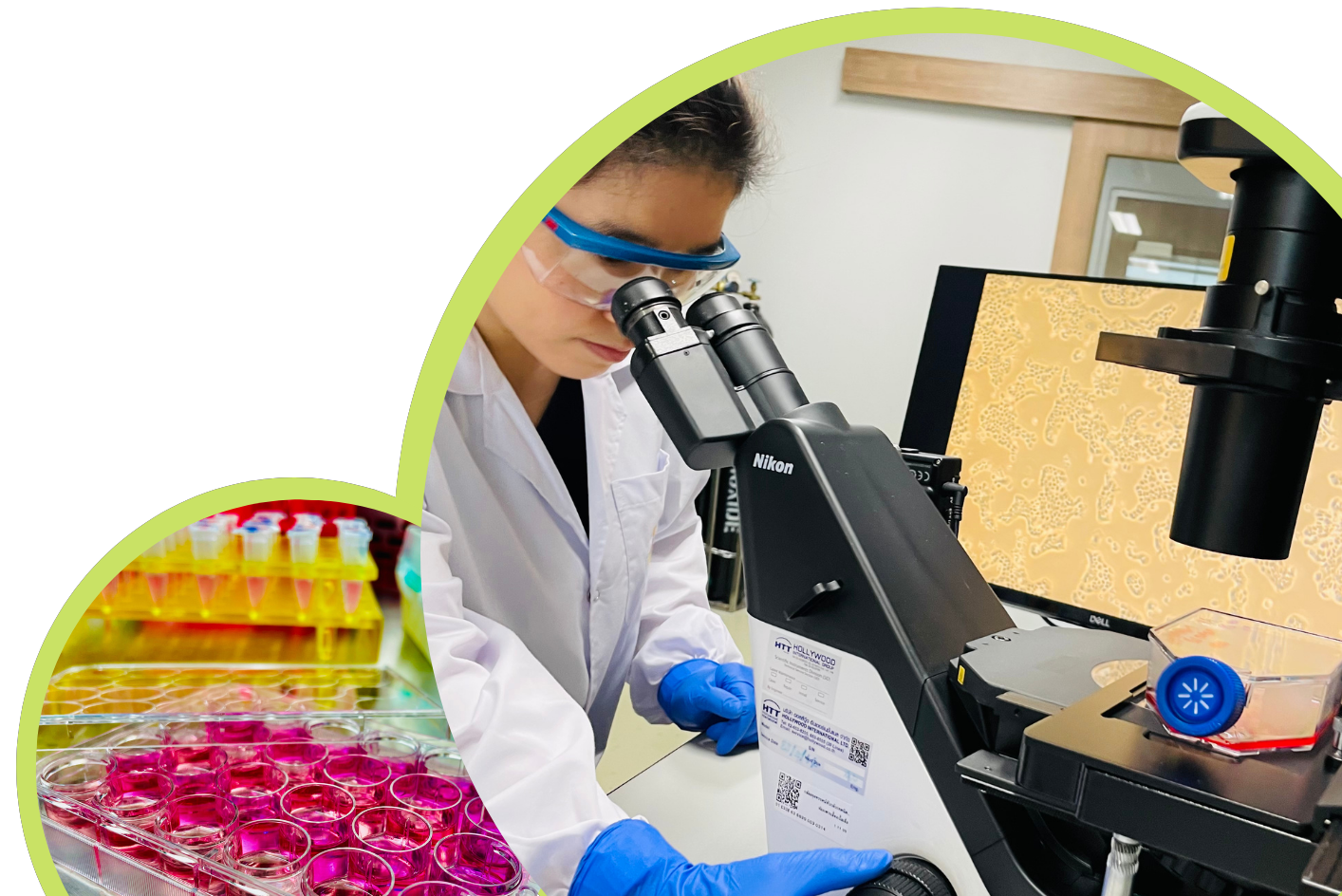Computational Chemistry-assisted Biological Evaluations and Molecular Mechanisms

The attained natural products and their analogs have been evaluated for their anticancer, antioxidant, antimicrobial, and anti-inflammatory activities, among others. With an emphasis on anticancer activity, more mechanistic understanding at the molecular level such as antiproliferation, cell cycle arrest, apoptotic induction, and cancer-related inflammation, more efficacious drug candidates can be designed and evaluated. For example, vernodalin, vernolepin, and vernolide, the natural sesquiterpene lactones from Gymnanthemum extensum or Pim Pailin, as well as uvamicranin B and uvarigrin from Uvaria micrantha induce apoptosis by inhibiting mitosis of HepG2 at the G2/M phase; this has led to further development of other sesquiterpene lactones and acetogenins as efficacious anticancer agents.
While direct biological evaluations provide the needed information on the potential utility of natural products, low natural abundance has been a severe limiting factor for a more comprehensive evaluation and medicinal applications. The advent of computational software has enabled virtual visualization of interactions between the biomolecular protein targets and the natural products. Through molecular docking, the process of biological studies has become more cost-effective; cost of high-throughput screening of otherwise greater number of compounds can be significantly lowered. More importantly, compound specificity against target of interest can be realized. To this end, libraries of over 1,000 structurally diverse natural products and their analogs available from CRI laboratories have been accumulated and evaluated in silico not only for cancer but also inflammation and metabolic syndromes such as obesity.








